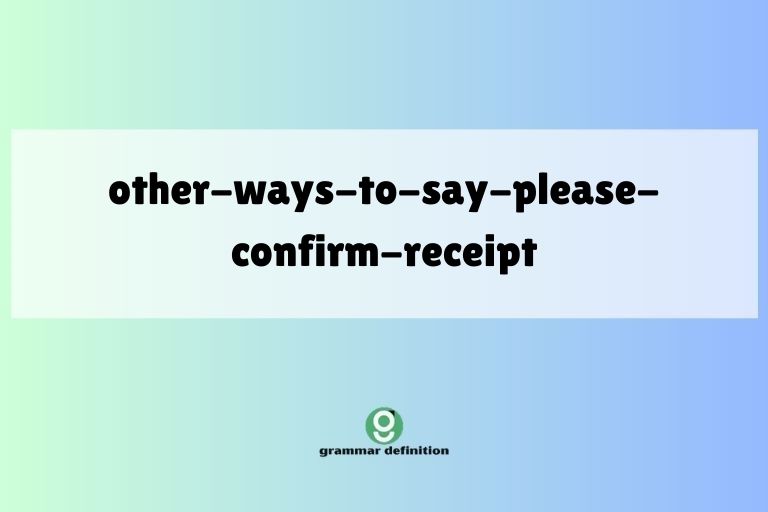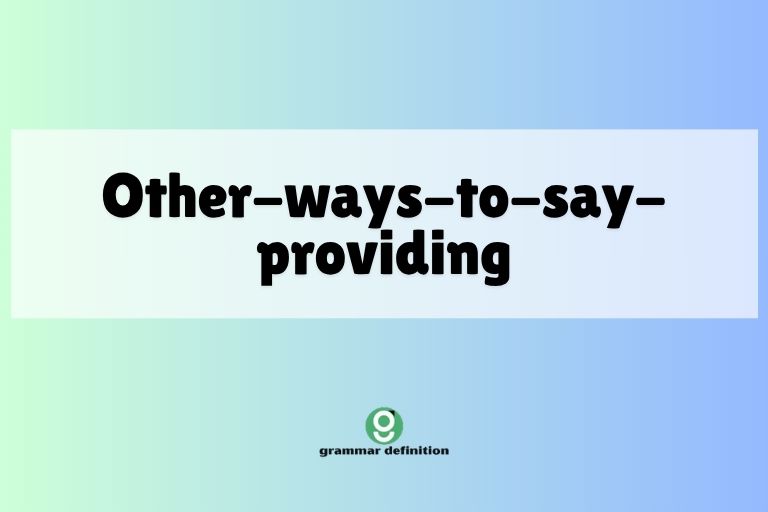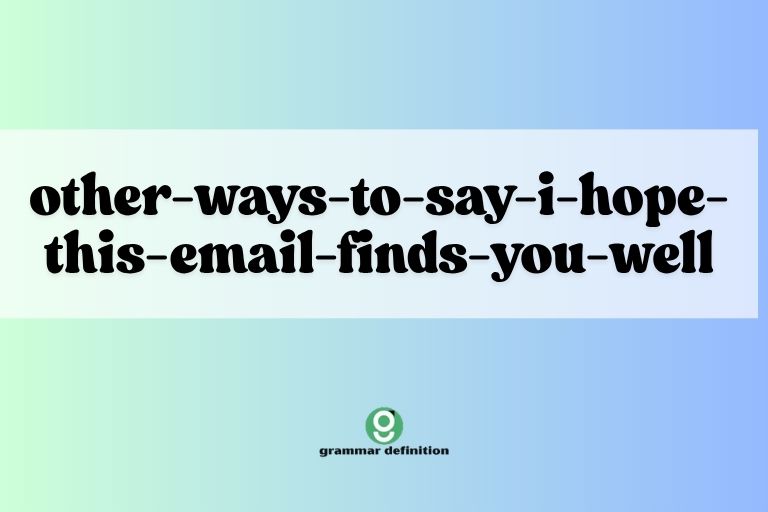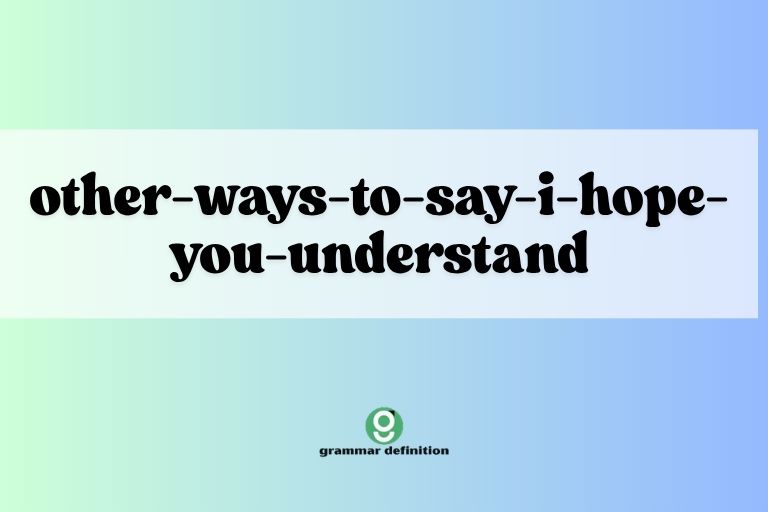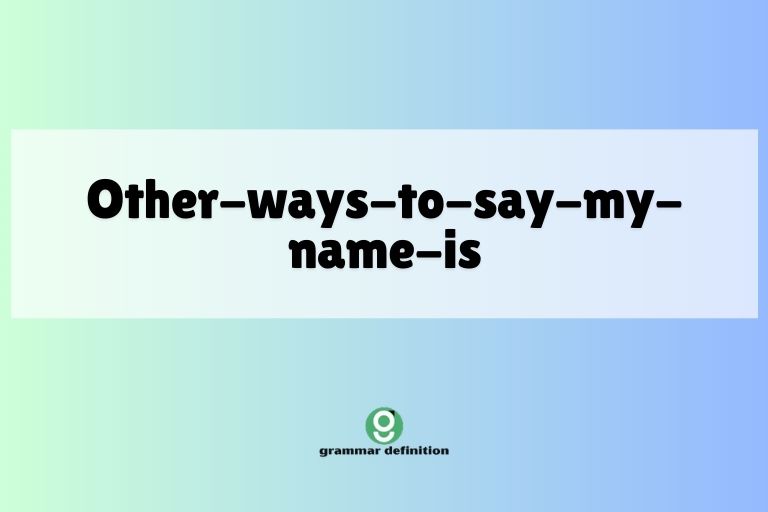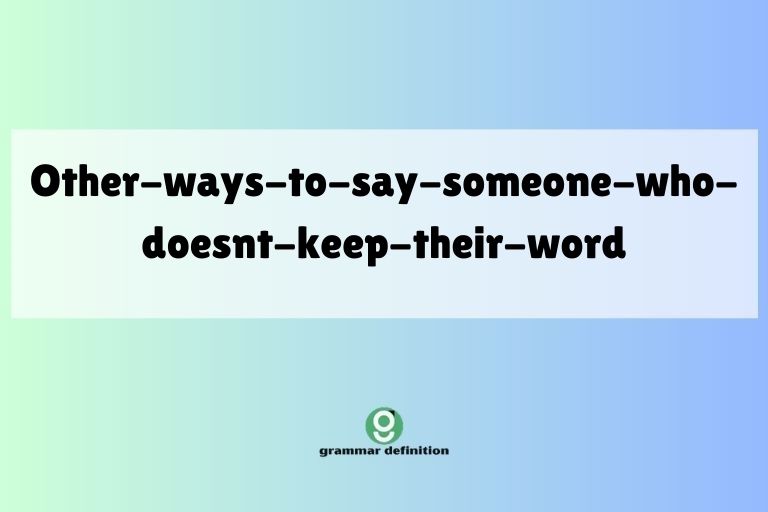Other Ways to Say “Closing a Deal”: A Comprehensive Guide

Mastering alternative expressions for “closing a deal” is crucial for effective communication in business and negotiation contexts. This skill enhances your professional vocabulary, allowing you to convey nuances and subtleties that a single phrase cannot capture.
Understanding these alternatives not only makes you a more articulate communicator but also helps you adapt to different audiences and situations. This article provides a comprehensive overview of various phrases and idioms used to describe the successful completion of a deal, making it an invaluable resource for professionals, students, and anyone looking to improve their business English.
This guide is designed to benefit English language learners, business professionals, and anyone interested in expanding their vocabulary related to negotiations and agreements. Whether you’re preparing for a presentation, writing a report, or simply aiming to sound more polished in conversations, this resource offers practical examples and exercises to help you confidently use these expressions.
Table of Contents
- Introduction
- Definition of “Closing a Deal”
- Structural Breakdown of Alternative Phrases
- Types and Categories of Expressions
- Examples of Alternative Phrases
- Usage Rules and Guidelines
- Common Mistakes to Avoid
- Practice Exercises
- Advanced Topics
- Frequently Asked Questions (FAQ)
- Conclusion
Definition of “Closing a Deal”
“Closing a deal” refers to the successful completion of a negotiation or transaction, resulting in an agreement between two or more parties. It signifies the point at which all terms and conditions have been met, and the agreement becomes binding.
This phrase is commonly used in business, sales, and legal contexts to describe the finalization of a contract, sale, or partnership.
In a broader sense, “closing a deal” implies achieving a desired outcome through skillful negotiation, persuasion, and compromise. It often involves overcoming obstacles, addressing concerns, and building consensus among the involved parties.
The phrase encapsulates the entire process leading up to the final agreement, highlighting the effort and strategy required to reach a successful conclusion.
Structural Breakdown of Alternative Phrases
Alternative phrases for “closing a deal” can be categorized based on their structural components. These structures often include verbs, nouns, and prepositions that convey the sense of completion, agreement, and success.
Common structural elements include:
- Verbs of Completion: These verbs emphasize the action of finalizing or concluding something (e.g., finalize, secure, wrap up).
- Nouns of Agreement: These nouns refer to the agreement itself or the document that formalizes the agreement (e.g., agreement, contract, terms).
- Prepositions of Success: These prepositions indicate the successful outcome or the direction towards the goal (e.g., on, with, to).
Understanding these structural elements allows you to analyze and deconstruct various phrases, making it easier to comprehend their meaning and usage. For example, the phrase “seal the deal” combines a verb of completion (seal) with a noun of agreement (deal), creating a concise and impactful expression.
Types and Categories of Expressions
Alternative ways to say “closing a deal” can be broadly classified into formal, informal, and idiomatic expressions. Each category serves a different purpose and is appropriate for different contexts.
Formal Expressions
Formal expressions are typically used in professional settings, such as board meetings, legal documents, and official correspondence. These phrases are characterized by their precision, clarity, and lack of colloquialisms.
Examples of formal expressions include:
- Finalize the agreement
- Execute the contract
- Conclude the negotiations
- Reach a consensus
- Secure the terms
Informal Expressions
Informal expressions are suitable for casual conversations, team meetings, and internal communications. These phrases are more relaxed and conversational, often using simpler language and more direct wording.
Examples of informal expressions include:
- Wrap it up
- Nail it down
- Get it done
- Seal the deal
- Close the loop
Idiomatic Expressions
Idiomatic expressions are phrases whose meaning cannot be understood from the literal definitions of the individual words. These expressions often add color and emphasis to your communication, but they should be used with caution, especially in formal settings.
Examples of idiomatic expressions include:
- Hammer out the details
- Get it over the line
- Bake it in the cake
- Shake on it
- Clinched the deal
Examples of Alternative Phrases
This section provides extensive examples of alternative phrases for “closing a deal,” organized by category. Each example is accompanied by a sentence illustrating its usage.
Formal Examples
The following table presents formal alternatives for “closing a deal,” suitable for professional and official contexts. These phrases emphasize precision and clarity.
| Formal Phrase | Example Sentence |
|---|---|
| Finalize the agreement | After several weeks of negotiations, we were able to finalize the agreement with the client. |
| Execute the contract | Both parties are now ready to execute the contract, making the partnership official. |
| Conclude the negotiations | The mediator helped us conclude the negotiations amicably and efficiently. |
| Reach a consensus | The board of directors was able to reach a consensus on the proposed merger. |
| Secure the terms | Our legal team worked diligently to secure the terms that were most favorable for our company. |
| Ratify the treaty | The governments involved met to ratify the treaty, ensuring its enforcement. |
| Formalize the arrangement | They decided to formalize the arrangement with a written contract to avoid future misunderstandings. |
| Approve the transaction | The shareholders must approve the transaction before the acquisition can proceed. |
| Sanction the agreement | The regulatory body needs to sanction the agreement to ensure compliance with industry standards. |
| Validate the terms | The auditor was brought in to validate the terms of the financial agreement. |
| Effectuate the settlement | The court order will effectuate the settlement, resolving the dispute between the parties. |
| Endorse the resolution | The members voted to endorse the resolution, signaling their collective support. |
| Legitimize the accord | The United Nations’ recognition helped to legitimize the accord between the warring factions. |
| Authorize the deal | The CEO had to authorize the deal before it could be officially announced. |
| Implement the provisions | The next step is to implement the provisions outlined in the signed document. |
| Finalize the paperwork | We need to finalize the paperwork to complete the property transfer. |
| Complete the formalities | After signing, we must complete the formalities to ensure the agreement is legally binding. |
| Officialize the partnership | The ceremony will officialize the partnership between our two companies. |
| Inaugurate the project | The ribbon-cutting will inaugurate the project, marking its official start. |
| Underwrite the venture | The bank agreed to underwrite the venture, providing the necessary financial backing. |
| Certify the outcome | An independent auditor will certify the outcome to ensure transparency and accuracy. |
| Inscribe the covenant | The historical society will inscribe the covenant to preserve its legacy for future generations. |
| Accredit the arrangement | The educational board will accredit the arrangement, recognizing its adherence to standards. |
| Solemnize the pledge | The wedding ceremony will solemnize the pledge, uniting the couple in marriage. |
| Validate the contract | A notary public is needed to validate the contract. |
Informal Examples
The following table provides informal alternatives for “closing a deal,” suitable for casual conversations and internal team communications. These phrases are more relaxed and conversational.
| Informal Phrase | Example Sentence |
|---|---|
| Wrap it up | Let’s wrap it up before the end of the day so we can all go home. |
| Nail it down | We need to nail it down this week to meet our quarterly goals. |
| Get it done | Just get it done by Friday, and we’ll be good to go. |
| Seal the deal | A handshake is enough to seal the deal for me. |
| Close the loop | Let’s close the loop on this project and move on to the next one. |
| Iron out the details | We just need to iron out the details before we can finalize the agreement. |
| Hammer it out | They spent the whole day trying to hammer it out, but they finally reached an agreement. |
| Solidify the agreement | Let’s solidify the agreement with a written contract. |
| Clinch the deal | He managed to clinch the deal at the last minute. |
| Bag the contract | They were thrilled to bag the contract after months of negotiations. |
| Lock it in | We need to lock it in before someone else makes a better offer. |
| Sew it up | Let’s sew it up and get this project off our plates. |
| Finalize things | We’re almost there, just a few more steps to finalize things. |
| Get the green light | Once we get the green light, we can start the project. |
| Make it official | Let’s make it official with a formal announcement. |
| Button it up | We need to button it up by the end of the week. |
| Tie up loose ends | Before we celebrate, let’s tie up loose ends. |
| Call it done | Once the paperwork is signed, we can call it done. |
| Put a bow on it | Let’s put a bow on it and present the finished product. |
| Take it to the bank | With this contract, we can take it to the bank. |
| Sign on the dotted line | Just sign on the dotted line, and we’re good to go. |
| Shake hands on it | Let’s shake hands on it to show we have an agreement. |
| Make it stick | We need to make it stick with a solid contract. |
| Wrap things up | It’s time to wrap things up for the day. |
| Get it over with | Let’s just get it over with so we can move on. |
Idiomatic Examples
The following table presents idiomatic alternatives for “closing a deal,” which add color and emphasis to communication. However, these should be used carefully, especially in formal settings.
| Idiomatic Phrase | Example Sentence |
|---|---|
| Hammer out the details | They spent hours hammering out the details before reaching an agreement. |
| Get it over the line | With a final push, we managed to get it over the line just before the deadline. |
| Bake it in the cake | With this contract secured, the success of the project is baked in the cake. |
| Shake on it | Let’s shake on it to show our mutual agreement and commitment. |
| Clinched the deal | She clinched the deal with her persuasive presentation. |
| Sew up the deal | We need to sew up the deal by the end of the week to meet our targets. |
| Bring home the bacon | The sales team worked hard to bring home the bacon this quarter. |
| Seal the deal with a handshake | They sealed the deal with a handshake, signifying their mutual trust. |
| Land the contract | Our company was thrilled to land the contract after the bidding war. |
| Ink the agreement | Both parties are ready to ink the agreement, making it official. |
| Take it across the finish line | With a final effort, we were able to take it across the finish line. |
| Cement the partnership | The new project will cement the partnership between our companies. |
| Nail down the specifics | We need to nail down the specifics before we can move forward. |
| Get the ball rolling | Now that we’ve closed the deal, we can get the ball rolling on the project. |
| Put the final touches on it | We just need to put the final touches on it before presenting it to the client. |
| Close the book on it | Let’s close the book on it and move on to the next challenge. |
| Get our ducks in a row | Before we can finalize, we need to get our ducks in a row. |
| Make hay while the sun shines | We need to make hay while the sun shines and capitalize on this opportunity. |
| Strike while the iron is hot | Let’s strike while the iron is hot and close the deal quickly. |
| Hit it out of the park | The sales team hit it out of the park this quarter with record-breaking sales. |
| Put a lid on it | Let’s put a lid on it and consider this matter resolved. |
| Get the show on the road | With the contract signed, let’s get the show on the road and start the project. |
| Go the whole nine yards | They went the whole nine yards to secure the contract. |
| Put pen to paper | It’s time to put pen to paper and formalize the agreement. |
| Get our signatures on it | Let’s get our signatures on it to make it official. |
Usage Rules and Guidelines
When using alternative phrases for “closing a deal,” it’s essential to consider the context, audience, and desired tone. Formal expressions are appropriate for professional settings, while informal expressions are suitable for casual conversations.
Idiomatic expressions should be used judiciously, as they may not be universally understood.
Here are some general guidelines:
- Know your audience: Tailor your language to suit the expectations and preferences of your audience.
- Consider the context: Choose phrases that are appropriate for the specific situation and purpose of your communication.
- Maintain consistency: Use language that is consistent with the overall tone and style of your communication.
- Avoid ambiguity: Ensure that your phrases are clear and unambiguous to prevent misunderstandings.
- Be mindful of cultural differences: Some expressions may not translate well across different cultures, so be aware of potential cultural sensitivities.
Common Mistakes to Avoid
Using the wrong phrase or misinterpreting its meaning can lead to confusion or miscommunication. Here are some common mistakes to avoid:
- Using informal expressions in formal settings: This can come across as unprofessional or disrespectful.
- Incorrect: “Let’s just wrap it up, guys.” (in a board meeting)
- Correct: “Let’s finalize the agreement.” (in a board meeting)
- Misunderstanding idiomatic expressions: Using an idiom incorrectly can change the intended meaning of your message.
- Incorrect: “We need to bake it in the cake before the meeting.” (when there’s no guarantee of success)
- Correct: “We are confident that the success is baked in the cake because all conditions are met” (when success is virtually guaranteed)
- Using overly complex language: This can make your communication difficult to understand.
- Incorrect: “We must effectuate the settlement with alacrity.”
- Correct: “We must finalize the settlement quickly.”
- Being too vague: Using phrases that are not specific enough can lead to misunderstandings.
- Incorrect: “Let’s get it done.” (without specifying what “it” refers to)
- Correct: “Let’s finalize the contract.” (specifying the contract)
Practice Exercises
Test your understanding of alternative phrases for “closing a deal” with these practice exercises.
Exercise 1: Formal vs. Informal
Choose the appropriate phrase (Formal or Informal) for each sentence.
| Sentence | Options (Formal/Informal) | Answer |
|---|---|---|
| 1. After lengthy discussions, we managed to __________ with the client. | a) finalize the agreement b) wrap it up | a) finalize the agreement |
| 2. We need to __________ before someone else makes a better offer. | a) secure the terms b) lock it in | b) lock it in |
| 3. Both parties are now ready to __________ , making the partnership official. | a) execute the contract b) make it official | a) execute the contract |
| 4. Let’s __________ and move on to the next project. | a) conclude the negotiations b) close the loop | b) close the loop |
| 5. Our legal team worked diligently to __________ that were favorable for our company. | a) secure the terms b) nail it down | a) secure the terms |
| 6. They spent hours __________ before reaching an agreement. | a) solidifying the terms b) hammering out the details | b) hammering out the details |
| 7. We need to __________ to ensure compliance with industry standards. | a) sanction the agreement b) get it done | a) sanction the agreement |
| 8. The ceremony will __________ between our two companies. | a) officialize the partnership b) make it official | a) officialize the partnership |
| 9. We must __________ to resolve the dispute between the parties. | a) effectuate the settlement b) tie up loose ends | a) effectuate the settlement |
| 10. The team worked hard to __________ this quarter. | a) bring home the bacon b) increase revenue | a) bring home the bacon |
Exercise 2: Idiomatic Expressions
Choose the idiomatic expression that best completes each sentence.
| Sentence | Options | Answer |
|---|---|---|
| 1. With this contract secured, the success of the project is __________. | a) in the bag b) baked in the cake c) in the loop | b) baked in the cake |
| 2. The sales team worked hard to __________ this quarter. | a) bring home the bacon b) wrap it up c) seal the deal | a) bring home the bacon |
| 3. They __________ with a handshake, signifying their mutual trust. | a) finalized the agreement b) shook on it c) wrapped it up | b) shook on it |
| 4. The new project will __________ between our companies. | a) solidify the agreement b) cement the partnership c) finalize the terms | b) cement the partnership |
| 5. They __________ to secure the contract. | a) went the extra mile b) went the whole nine yards c) finalized the details | b) went the whole nine yards |
| 6. Let’s __________ and consider this matter resolved. | a) call it a day b) put a lid on it c) wrap it up | b) put a lid on it |
| 7. Now that we’ve closed the deal, we can __________ on the project. | a) get the show on the road b) get the ball rolling c) start the engine | b) get the ball rolling |
| 8. Let’s __________ and capitalize on this opportunity. | a) strike while the iron is hot b) make hay while the sun shines c) seize the day | b) make hay while the sun shines |
| 9. It’s time to __________ and formalize the agreement. | a) put pen to paper b) sign on the dotted line c) shake on it | a) put pen to paper |
| 10. The sales team __________ this quarter with record-breaking sales. | a) made a killing b) closed a lot of deals c) hit it out of the park | c) hit it out of the park |
Advanced Topics
For advanced learners, exploring the nuances of persuasive language and negotiation tactics can provide a deeper understanding of how deals are closed. This involves studying rhetoric, psychology, and communication strategies to effectively influence and persuade others.
Some advanced topics include:
- Rhetorical Devices: Understanding how to use rhetorical devices such as metaphors, analogies, and rhetorical questions to enhance your persuasive abilities.
- Psychological Principles: Applying psychological principles such as reciprocity, scarcity, and social proof to influence decision-making.
- Negotiation Strategies: Mastering advanced negotiation techniques such as win-win negotiation, anchoring, and framing to achieve favorable outcomes.
- Cultural Sensitivity: Developing cultural awareness and adapting your communication style to suit different cultural norms and expectations.
- Emotional Intelligence: Cultivating emotional intelligence to understand and manage your own emotions and the emotions of others, leading to more effective communication and relationship building.
Frequently Asked Questions (FAQ)
Here are some frequently asked questions about alternative ways to say “closing a deal.”
- What is the difference between “finalize the agreement” and “seal the deal”?
“Finalize the agreement” is a formal expression that emphasizes the completion of all necessary steps to make an agreement binding. “Seal the deal” is an informal expression that implies a more symbolic or celebratory conclusion to the negotiation process. “Finalize the agreement” is appropriate in legal or official contexts, while “seal the deal” is suitable for casual conversations or team celebrations.
- When should I use an idiomatic expression?
Idiomatic expressions should be used carefully, especially in formal settings. They can add color and emphasis to your communication, but they may not be universally understood or appreciated. Consider your audience and the context before using an idiom. If you are unsure whether an idiom is appropriate, it is best to use a more direct and straightforward expression.
- How can I improve my negotiation skills?
Improving your negotiation skills requires practice, preparation, and a willingness to learn. Start by researching negotiation strategies and tactics. Practice your communication and persuasion skills. Seek feedback from mentors or colleagues. Attend workshops or seminars on negotiation. Most importantly, be patient and persistent, as negotiation skills develop over time.
- What are some common mistakes to avoid when negotiating?
Common mistakes to avoid when negotiating include failing to prepare adequately, making assumptions, being too emotional, not listening actively, and failing to build rapport. It is also important to avoid making ultimatums or threats, as these can damage relationships and undermine the negotiation process.
- How important is cultural sensitivity in international negotiations?
Cultural sensitivity is crucial in international negotiations, as cultural differences can significantly impact communication styles, negotiation tactics, and expectations. Failing to understand and respect cultural norms can lead to misunderstandings, mistrust, and ultimately, failed negotiations. It is essential to research the cultural norms of your counterparts and adapt your communication style accordingly.
- What role does non-verbal communication play in closing a deal?
Non-verbal communication, including body language, facial expressions, and tone of voice, plays a significant role in closing a deal. Positive body language, such as maintaining eye contact and nodding, can convey confidence and agreement. Conversely, negative body language, such as fidgeting or avoiding eye contact, can signal discomfort or skepticism. Being aware of your own non-verbal cues and interpreting those of others can enhance your communication and build rapport, facilitating a successful negotiation.
- How can I handle objections or concerns during a negotiation?
Handling objections or concerns during a negotiation requires patience, empathy, and effective communication skills. Start by actively listening to the other party’s concerns and acknowledging their validity. Ask clarifying questions to ensure you understand their perspective. Then, address their concerns by providing evidence, offering solutions, or finding common ground. Be prepared to compromise or make concessions to reach a mutually agreeable outcome.
- What are some ethical considerations in closing a deal?
Ethical considerations are paramount in closing a deal, as maintaining integrity and building trust are essential for long-term success. Avoid using deceptive tactics, making false promises, or withholding relevant information. Be transparent, honest, and fair in your dealings. Respect the rights and interests of all parties involved. By adhering to ethical principles, you can build strong relationships and foster a reputation for integrity.
Conclusion
Mastering alternative phrases for “closing a deal” is a valuable skill that enhances your professional communication and negotiation abilities. By understanding the nuances of formal, informal, and idiomatic expressions, you can adapt your language to suit different contexts and audiences.
Remember to consider the context, audience, and desired tone when choosing your words, and avoid common mistakes that can lead to miscommunication.
Continue to practice and expand your vocabulary to become a more articulate and effective communicator. By incorporating these alternative phrases into your repertoire, you can confidently navigate business negotiations and achieve successful outcomes.
Embrace the challenge of mastering these expressions, and you’ll be well-equipped to excel in any professional setting.

